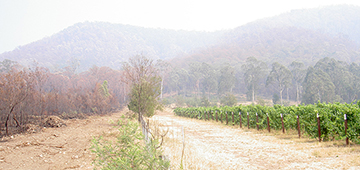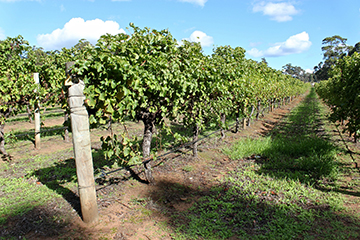7 April 2020
The COVID-19 pandemic is affecting people, communities and businesses across the world. Companies everywhere are changing the way they work to minimise the risk of spreading the virus and help ‘flatten the curve’. The AWRI is committed to continuing to provide its full range of services to support the Australian grape and wine community, while taking all possible steps to ensure the well-being of its staff and the broader community.
In response to the pandemic, we have had to make some changes to how we deliver our services. This eBulletin outlines those changes, and provides information on how all stakeholders can continue to access the services they need. The AWRI can be continue to be contacted during business hours on 08 8313 6600 and enquiries@awri.com.au.
Essential service classification
The AWRI is pleased to have received confirmation from the South Australian Government that it has been classified as an essential service provider to agriculture. This means that in the event of further restrictions on workplaces in SA, it is likely that the AWRI’s laboratories will be able to continue to operate to support the Australian wine industry.
Building access
Access to the WIC central building is now restricted to staff members and essential maintenance workers only. No visitors are permitted. Please phone AWRI Reception on 08 8313 6600 if you need to contact an AWRI staff member or to arrange to submit samples.
AWRI Commercial Services
AWRI Commercial Services is still providing its full suite of analyses and services. The laboratories are fully operational, working under strict social distancing rules. Changes have been made to sample submission and payment processes to protect both customers and staff. South Australian customers who usually drop off their samples in person are being asked to leave samples on a dedicated trolley in the foyer of the building (accessible by phoning AWRI Reception on 08 8 313 6600) and to provide paperwork via email. For all other customers, Australia Post and couriers are still able to deliver samples safely. Sample pick-up arrangements in place in some regions are continuing as usual.
AWRI helpdesk
The AWRI helpdesk is continuing to provide technical winemaking and viticulture advice and conduct investigations. While helpdesk staff are predominantly working from home, there are no interruptions to services. Australian grapegrowers and winemakers can continue to contact the helpdesk via helpdesk@awri.com.au or 08 8313 6600. The AWRI website also provides a wide range of technical winemaking and viticulture resources.
Library services
The physical library space is now closed to visitors, but all other library services are still available. This includes the library catalogue, access to eBooks, delivering articles and conducting specialised literature searches. An AWRI website login is required to access the library’s online services – subscribe here or reset your password if you have forgotten it. Contact the library team on infoservices@awri.com.au.
Events
The AWRI’s face-to-face events are currently on hold due to the social distancing and travel restrictions in place to help stop the spread of COVID-19. During this period, webinars and other virtual platforms will be used to maintain delivery of relevant content to winemakers and grapegrowers. Follow the AWRI’s YouTube channel or access all previous webinar recordings from the AWRI webinar page. A new program of webinars will be launched shortly. Face-to-face events will relaunch once restrictions are lifted. For any queries about events, contact the events team on events@awri.com.au.
WIC Winemaking Services
Vintage is continuing for WIC Winemaking Services, under strict conditions restricting who can access the winery. All trials and contract winemaking are progressing as planned. Contact John Gledhill on WIC.WinemakingServices@awri.com.au for any queries related to WIC Winemaking Services.
Metabolomics SA
Metabolomics SA is continuing to provide metabolomics services for researchers and industry. The Metabolomics team members are maintaining laboratory operations while following social distancing protocols; otherwise, team members are working from home. For requests, consultations or sample submission please contact metabolomics@awri.com.au. To submit samples, please organise a drop-off time via email, otherwise use Australia Post or a courier.




